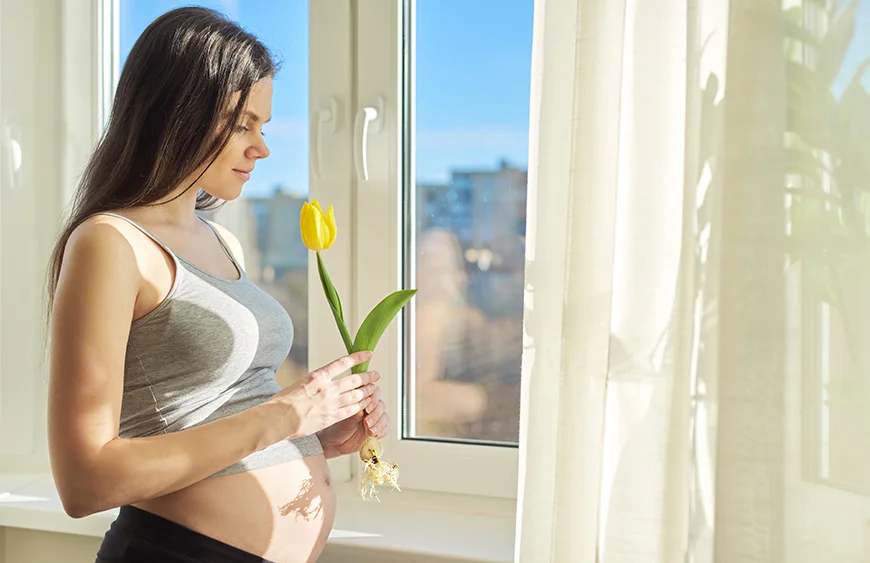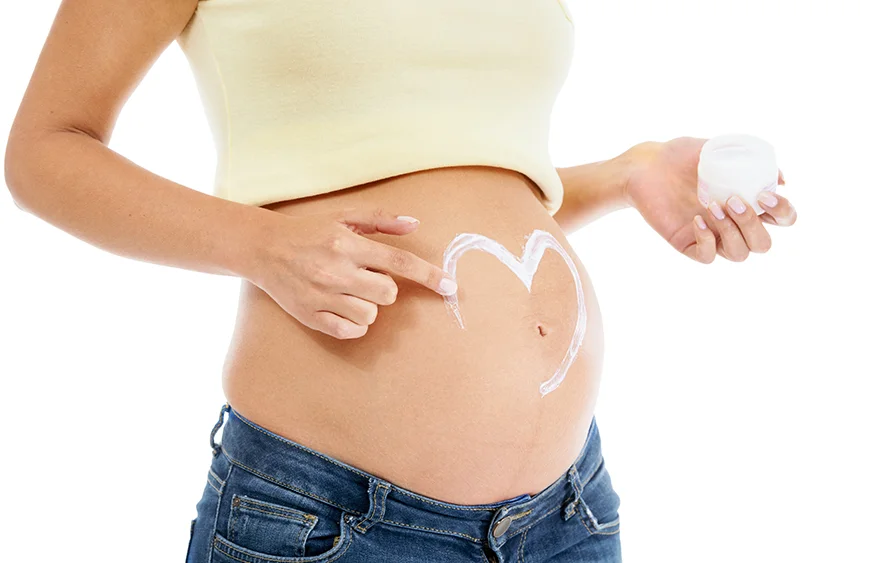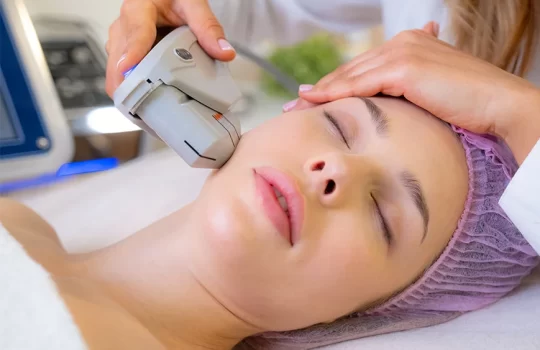Pregnancy Symptoms: Signs of Pregnancy and Their Impact on Your Radiance

First, pregnancy symptoms are of general indications. For example, one of the most common symptoms of pregnancy is the absence of menstruation, or what is known as the menstrual cycle. So, if you are planning to conceive or waiting for pregnancy, the delay of the menstrual cycle is one of the first symptoms of pregnancy.
Moreover, for individuals with consistent and accurate menstrual cycles, the lack or postponement of a monthly period could indicate a potential sign of pregnancy. This subtle shift in your menstrual pattern often prompts further consideration and may warrant taking a pregnancy test for clarification.
How do I know if I am pregnant in the first week?
Nausea and vomiting: Nausea and vomiting are common symptoms in the early months of pregnancy, especially if it is your first time. Nausea and vomiting are not dependent on eating specific food or smelling certain scents during pregnancy. They are more of pregnancy symptoms themselves. Therefore, avoiding food and drink will not be beneficial for you. Instead, you should ensure a balanced diet because it will tremendously support you and the baby.

When do pregnancy symptoms start to appear?
Pregnancy symptoms typically begin to appear after the first two months of pregnancy. At that time, you may notice breast tenderness and enlargement. The breast may be fuller and more sensitive. This does not indicate any serious concern. These are the symptoms of pregnancy, as mentioned earlier. The body is under many consecutive and rapid hormonal changes that appear in the form of what are known as signs of pregnancy or pregnancy symptoms.
Can you be pregnant and have no symptoms at all?
Yes, pregnancy can occur without any symptoms, especially if it is your first time. The symptoms can vary from one woman to another, and there may be no symptoms such as changes in appetite or mood swings. However, the missed monthly period remains a consistent sign that does not change from woman to woman.
What are other well-known symptoms of pregnancy?
Pregnancy symptoms are considerable and various and may involve hormonal fluctuations, especially in the early months, which can cause you to be highly sensitive and quick to tears. Swelling is also joint. Light vaginal bleeding, also known as spotting, may occur, which can cause some concern, but is usually normal.
Painful cramps are also a common pregnancy symptom, similar to those experienced during the menstrual cycle, and may occur as the body adapts to the presence of the fetus. Constipation is a common symptom and condition of pregnancy, resulting from the hormonal and physical changes affecting the digestive system.
Pregnancy symptoms also include nasal congestion. Although it is an uncommon symptom associated with pregnancy, it is instead recurring and can also be attributed to hormonal changes during pregnancy. Despite their diversity, all these symptoms are part of the complex pregnancy journey accompanying a woman throughout a period characterized by physiological and emotional changes.
Key pregnancy symptoms in brief:
- Missed period/menstruation
- Painful and sharp stomach
- Cramps
- Mood swings
- Constipation
- Fuller Breast
- Nasal congestion
- Nausea or Vomiting
- Fatigue
- Vaginal Discharge
Does pregnancy affect your beauty?
Yes, pregnancy can significantly impact a woman’s beauty and appearance. There are usually changes in the body and appearance that occur during pregnancy. A woman’s beauty undergoes many changes and symptoms during pregnancy. Some women may feel less beautiful; however, the beauty of a woman remains mainly sourced from within, radiating love and tenderness, not just her body and the changes it undergoes.

Changes that affect a woman's beauty or body during pregnancy include
○ Weight Gain
Women usually gain weight during pregnancy due to the weight of the fetus themselves and other hormonal and physiological changes that the body goes through. Weight gain during pregnancy can lead to a change in the body’s shape overall. The size of the hips may increase, or the breasts would probably get fuller shapes.
○ Skin changes:
Some changes in skin tone, texture, or the appearance of dark spots may occur during pregnancy. Some women might experience stretch marks, one of the most common changes. Other women may have acne as pregnancy causes hormonal changes that lead to changes in the body’s overall appearance.
○ Hair Texture and Growth:
Pregnancy may improve hair health in some women, while others may experience hair loss. As mentioned, pregnancy symptoms vary from woman to woman, and what may lead to increased hair growth in one woman may cause hair loss for another. This is subject to many hormonal changes that would determine.
○ Fuller Breast:
During pregnancy, a woman may experience an increase in breast size, and this transformation can persist throughout the natural breastfeeding period. Suppose a woman is contemplating natural breastfeeding for her baby. In that case, she needs to recognize that natural breastfeeding introduces hormonal and physiological changes to the body, similar to pregnancy.
○ Changes in the face:
During pregnancy, a woman may experience an increase in breast size, and this transformation can persist throughout the natural breastfeeding period. Suppose a woman is contemplating natural breastfeeding for her baby. In that case, she needs to recognize that natural breastfeeding introduces hormonal and physiological changes to the body, similar to pregnancy.
How do you sustain your radiance and well-being during Pregnancy?

Following a comprehensive exploration of pregnancy symptoms and the accompanying hormonal and physiological transformations, sustaining beauty during this period encompasses a range of methods and practices.
These include caring for the skin, adopting a healthy lifestyle, and engaging in self-care routines to promote the well-being of both the mother and the developing fetus. Here are some valuable tips:
1. Skincare routine:
A gentle and safe skincare routine during pregnancy can help address changes in the skin, such as acne or breakouts. Moisturizing and using products containing ingredients like hyaluronic acid can help improve hydration.
2. Healthy diet:
Ensuring a well-balanced and nutrient-dense diet is paramount for both your and the fetus’s health, significantly influencing skin health. Opting for foods abundant in vitamins and antioxidants, such as various fruits and vegetables, promotes your health and supports the optimal growth of the developing fetus.
3. Hydration
Maintaining adequate hydration for yourself and the fetus during pregnancy is essential. Drinking sufficient water helps maintain skin elasticity and can alleviate problems such as swelling, constipation, and even mood swings.
4. Safe beauty products:
Choosing beauty and skincare products that are safe during pregnancy is essential. Avoiding products that contain potentially harmful ingredients and opting for natural or organic choices is advisable. You can also consult with a doctor about chemical ingredients to avoid during pregnancy.
5. Sun protection:
Proper sun protection is crucial throughout pregnancy, underscoring its significance beyond this period. Employing a broad-spectrum sunscreen with a minimum SPF of 30, coupled with donning protective clothing to prevent alterations in pigmentation, proves beneficial for both you and your baby.
6. Regular exercise:
Engaging in safe and moderate exercise can improve circulation, boost mood, and improve overall health, ultimately benefiting the child. However, you should consult with a doctor before starting an exercise regimen during pregnancy to ensure that the movement does not pose any risk to you or the fetus.
7. Adequate sleep:
In the later stages of pregnancy, achieving restful sleep can be challenging, yet it remains crucial for physical and emotional well-being. Despite potential interruptions, prioritizing sufficient rest is vital. Cultivating a consistent and healthy sleep pattern not only aids in stress management but also significantly promotes overall well-being and a vibrant appearance.
8. Stress Management:
Prolonged stress during pregnancy can impact not only the well-being of the fetus but also your health and skin condition. Relaxation techniques, such as meditation, deep breathing, or yoga, are highly recommended to manage and control stress levels throughout pregnancy effectively.
Seek Advice from a Gynecologist:

Prolonged stress during pregnancy can impact not only the well-being of the fetus but also your health and skin condition. Relaxation techniques, such as meditation, deep breathing, or yoga, are highly recommended to manage and control stress levels throughout pregnancy effectively.










